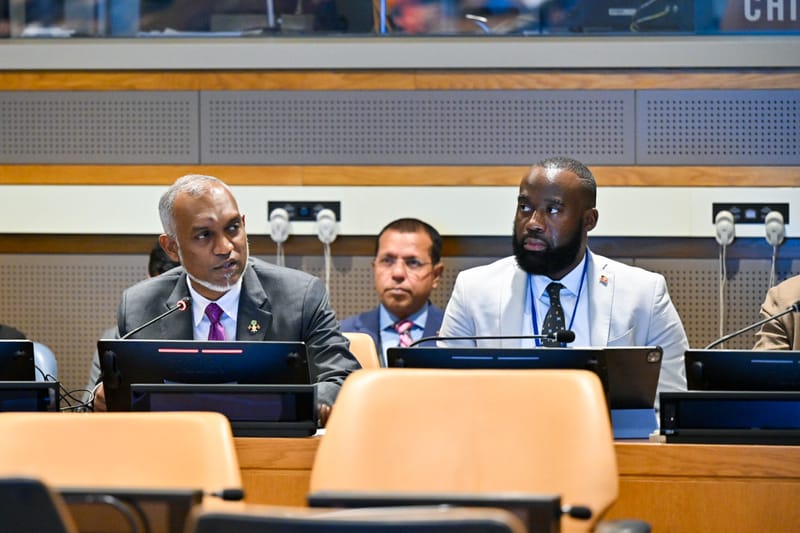From Paradise to Scam Hub: How Global Fraud Networks Exploit Maldivians
Maldivians are falling victim to promises of quick returns, with scammers exploiting social media platforms and weak financial literacy.
The Maldives, an island paradise best known for its tourism industry, is increasingly becoming a target for cryptocurrency scammers. Limited financial literacy, combined with weak regulatory oversight, has left the country vulnerable to organized fraud networks. These scammers, exploiting platforms like social media and WhatsApp, lure Maldivians with promises of fast and easy returns. While the Maldives faces its own unique challenges, a study from the University of Queensland on similar scams in Australia provides a broader perspective on the global nature of the problem.
The Rise of Cryptocurrency Scams in the Maldives
In the Maldives, scammers often create fake social media profiles that resemble local figures, earning trust through familiar names and faces. Once connected, they convince victims to make small investments—often starting at $100—paid in cryptocurrency. The scammers direct victims to fake websites, where their "profits" seem to grow, creating the illusion of quick gains.
The trap tightens when victims try to withdraw funds, only to be asked to deposit more money to cover fees. This leads to an endless cycle of loss. Adding to the complexity, local agents are unknowingly recruited to help by collecting funds and converting them into cryptocurrency. Many of these agents are unaware they are part of a scam, leading to blocked accounts and legal consequences as their names are reported by victims.
Global Parallels: Lessons from the Australian Experience
While the Maldives is increasingly targeted by cryptocurrency scams, this is not an isolated issue. A study led by Associate Professor Levon Blue from the University of Queensland revealed that Australians lost $171 million to cryptocurrency scams in 2022. The study found that vulnerability to these scams transcends socioeconomic status, with both financially stable individuals and those with fewer resources falling victim. This broader look provides valuable insights into how the Maldives is grappling with similar issues.
The study identified two distinct groups vulnerable to scams, reflecting trends seen in the Maldives:
- Socioeconomically Disadvantaged Group:
In Australia, casual workers, renters, and those with lower levels of education are more susceptible to scams. They are often influenced by social media hype and lack the financial or IT literacy needed to protect themselves. - Socioeconomically Advantaged Group:
Even those with financial literacy and education are not immune. The Australian study found that overconfidence in financial knowledge often leads to greater risk-taking behaviors, making them easy targets for more sophisticated scams.
Both groups are influenced by social media, where misinformation and hype around digital currencies thrive. The lack of reliable financial education available through trusted sources leaves these groups vulnerable to scammers.
The Latest Tactic
DeFi Mining Scams One of the most common scams in the Maldives today involves fake DeFi (decentralized finance) mining groups. Victims are added to WhatsApp groups and promised daily returns of up to 7% by investing in a "mining pool." They are encouraged to deposit funds into a Trust Wallet—a reputable platform—and click on a link to connect to the mining pool.
Initially, the scammers may deposit small amounts of "profit" into victims’ wallets to build trust. However, by connecting to the fake mining pool, victims unknowingly give the scammers access to their wallets, allowing them to steal the funds. Once the scammers reach their target collection, they close the group and disappear, leaving the victims with empty wallets. According to local reports, hundreds of such groups are active in the Maldives, with substantial sums of money being siphoned off.
Why the Maldives Is Particularly Vulnerable
The Maldives’ economic conditions make it particularly susceptible to these scams. The country lacks a developed capital market, meaning there are few traditional investment opportunities available. Cryptocurrencies, with their promise of quick, exponential returns, have captured the imagination of many Maldivians, who see them as an alternative way to achieve financial stability.
Moreover, the Maldives is grappling with ongoing fiscal challenges, which only exacerbate the situation. With few safe avenues for wealth creation and increasing economic uncertainty, many Maldivians view cryptocurrency as a way to escape financial hardship. This makes them even more attractive targets for international scam networks, who promise fast profits with little risk.
The Path Forward
The Maldives must adopt targeted solutions to protect its citizens from the growing threat of cryptocurrency scams. The government should launch public awareness campaigns to educate people on the tactics used by scammers and the risks of investing in unverified platforms. Schools, vocational centers, and universities should incorporate financial literacy programs, emphasizing the dangers of speculative digital investments like cryptocurrency.
The Maldivian government also needs to streamline the process for reporting scams and ensure that victims can seek help without fear of retribution. Strengthening regulatory oversight and clamping down on local agents unknowingly aiding these scams will be critical to addressing the issue. Furthermore, collaborating with international bodies to track and dismantle global scam networks will be essential in reducing the flow of fraud into the country.
By examining the Australian experience, it becomes clear that financial literacy, stronger regulations, and increased public awareness are crucial tools in combating these scams. The Maldives must act quickly to implement these strategies, reducing its exposure to the growing threat of cryptocurrency fraud and protecting its citizens from further financial harm.









